Police Sergeant Interview Question: Motivating Officers
Police sergeant interview questions are most challengeing for those who are rising into a supervisor role for the first time. You are now not only responsible for yourself, you are responsible for the personnel assigned to you. That responsibility is more clear cut when we are referring to inappropriate behaviors by officers and the corresponding corrective behaviors that supervisors should take. But what about behavior that is not a violation, but at the same time is not optimal. Making a difference here can come down to influencing the motivation of the personnel that report to you. For that reason, the police sergeant interview question on motivation is one for which sergeant candidates should be well prepared.
“If you are looking for a well designed assessment / oral interview study program this is the one. The program is very reasonably priced, so don’t risk your career watching free videos or just reading articles on line. If you’re serious about getting promoted, invest in your career and use The Oral Boards Made Easy program. It will help you get promoted.”
-Promoted to Lieutenant in Massachusetts
ANSWER TRANSCRIPT:
Police Motivation
“I recognize that each of us is self-motivated. That said, I also recognize that what I do as a supervisor can have an influence on another person’s self motivation. To the extent that I engage in communication and behaviors that inspire others to perform at a desired higher level, the benefit for that person, my team, and the organization should be obvious.
My responsibility is to blend team communication with individual communication if I am going to impact overall motivation. My team communication will more often than not occur at our daily pre-shift briefings. I know that many individuals respond instinctively to social proof, in other words they adjust their behaviors to the accepted behaviors of the group. So, I must get off on the right foot with my team. I will let them know my expectations – which, by the way, are the department’s expectations – and I will explain why those expectations are important. These expectations will be revisited frequently and reinforced through affirming or, if needed, corrective communication on my part. This will motivate each member of my team to be responsible to the other members of the team.
On an individual level, much of the one-to-one communication with my officers will be about learning what is important to them. The better that I understand my officers, their goals and their challenges, the better prepared I will be to make decisions that align their goals with department goals. Although textbooks write about common motivation techniques, I would be cautious in assuming that such a broad approach would be right for each individual. Rather, my individual approach to motivating my officers will be focused on learning as much as I can about them, letting them know that they are valued and supported, and to display compassion and caring as warranted. My officers are people first, with real needs and concerns. Being there for them is the best way that I know to inspire them to consistently put their best effort forward.
Those are my thoughts on motivation and how I will seek to activate the motivation of my personnel once I am promoted to sergeant.”







